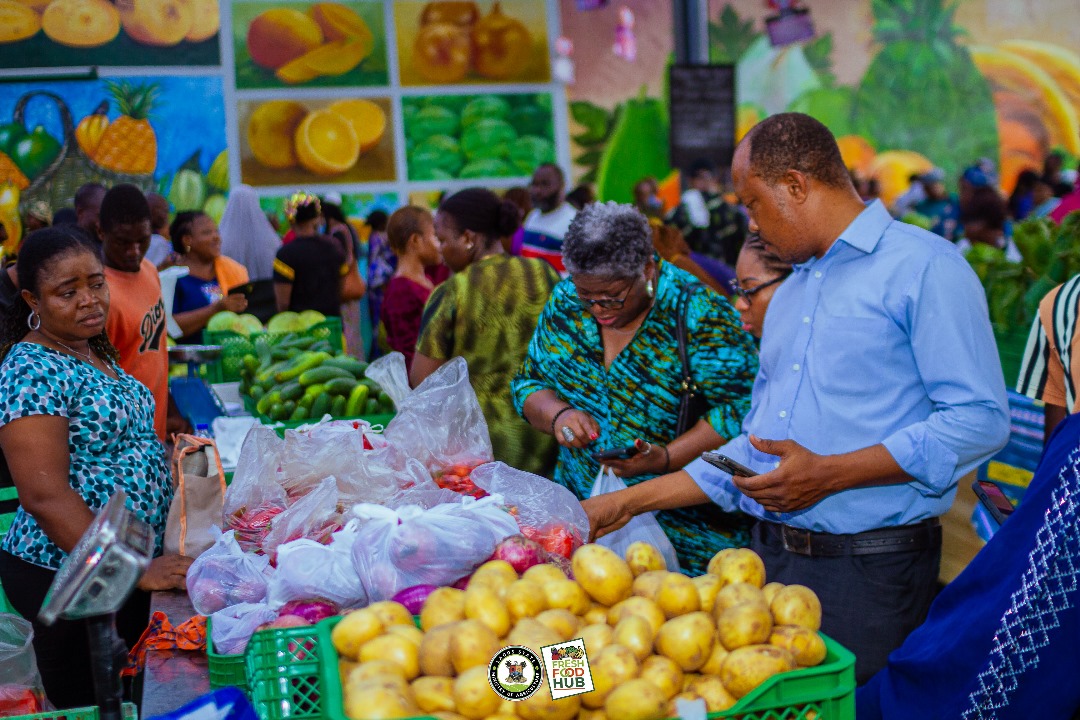 • Beans getting out of reach, says Rewane
• Beans getting out of reach, says Rewane
• Lagos puts Ounje Eko initiative on hold, reviews concerns from stakeholders
The National Bureau of Statistics (NBS) has said the cost of healthy food per adult a day stood at N1,255 in August.
The NBS disclosed this in its National Average Cost of a Healthy Diet (CoHD) report released in Abuja yesterday. It added that the CoHD decreased by 0.8 per cent compared to the N1,265 for July.
The NBS described the CoHD as the least expensive combination of locally available items that met globally consistent food-based dietary guidelines. It was used as a measure of physical and economic access to healthy diets.
The report read: “This is a lower floor of the cost per adult per day excluding the cost of transportation and meal preparation. To compute the CoHD indicator, data on Retail Food Prices, Food Composition Data, and Healthy Diet Standards are required.
“In August, the average CoHD was highest in the South-West at N1,554 per adult per day, followed by the South-South at N1,381 per day. The lowest average CoHD was recorded in the North-West at N1,014 per adult per day.
“At the state level, Ogun, Lagos, and Rivers recorded the highest CoHD at N1,641, N1,615, and N1,572, respectively. On the other hand, Katsina recorded the lowest CoHD at N880, followed by Kaduna at N951, and Sokoto at N980.”
The NBS pointed out that the CoHD had steadily increased since March. “The CoHD in August 2024 is 28 percent higher than what was recorded in March 2024 at N982.”
This is as the Managing Director of Financial Derivatives Company Limited, Bismarck Rewane, lamented yesterday that while the prices of other food commodities have recorded a minimal drop in the last few days, market prices of beans have significantly gone up. Rewane stated this on Channels Television’s Business Morning segment of Sunrise Daily breakfast programme.
“We have seen onions come down sharply to N115,000, and rice has also come down to N110,000; it was as high as N120,000. The commodity that is surprising to everybody is beans; beans have gone out of storage and out of reach,” he said.
According to market checks, traders sold a paint rubber of beans for N13,000 and a derica of the commodity for N3,000 while a bag of beans goes for as high as N180,000. The economist attributed the hike in beans’ prices to recent flooding which ravaged food-producing states like Borno, Bauchi, and Sokoto, among others.
“Flooding has destroyed a lot of goods,” Rewane said, adding that the costs of moving agricultural produce from farms to the markets have also gone up due to a recent hike in petrol prices — from around N600 to about N1,000 per litre.
The economist predicted that food inflation would increase in the coming weeks but was optimistic that duty waivers on expected imported commodities would moderate prices.
Nigeria is battling one of its worst economic crises in recent times, with rising living and energy costs, sparked by the twin policies of the government’s removal of petrol subsidy and unification of the foreign exchange windows in May 2023.
Meanwhile, the Lagos State Government has announced its decision to put the Ounje Eko Initiative on hold, with a commitment to address concerns raised by market leaders and other major stakeholders at various centers across the metropolis.
The Commissioner for Agriculture and Food Systems, Ms. Abisola Olusanya, made this statement during a strategic meeting with market leaders at the Food Hub in Idi-Oro, Mushin. She explained that the decision by the government to put the initiative on hold was made to incorporate feedback from major stakeholders to improve service delivery to residents.
Olusanya noted that the government had initiated various programs to boost food production, and the large crowds at the different centers reflected the public’s acceptance of the initiative.
According to her, crowd management is a shared responsibility. She also commended some members of the House of Assembly for stepping in to assist at critical moments.
The Commissioner highlighted that the government had executed a buy-back program from some vendors during the first phase of the initiative, which began in March. She added that the second phase, which started on September 1, is still a work in progress.
She further explained that the start of the new school term could be partly responsible for the shortage of items at some centers, as vendors have to divide their supplies between the markets and the schools.
Olusanya assured stakeholders that the government has taken steps to address reports of delays in vendor payments, ensuring that the 25 per cent discount enjoyed by residents is not compromised. She also mentioned that the payment reconciliation process had been improved.






